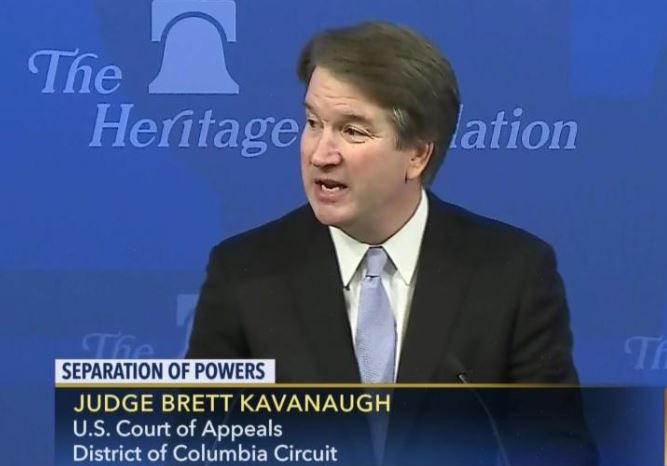Botsa Garcy 6 (2 15 20 19 1 7 1 18 3 25) (6)
The title is a bit intimidating I suppose but yes, something must be done to save the species human. Who agrees that time is overdue to think of something new?
Who believes that anyone will survive the variants, which are erupting as I write from the greatest viral volcano on Earth—the USA. Variants drift like the spores of dandelions to every cranny of creation where they ignite viral fires that cannot be doused.
What makes scary the words and numerology of Botsa Garcy 6?
Anything incomprehensible seems crazy, alien, foreign, terrifying. Encountering the unknown can induce horror. It’s why folks who are afraid of creepy crawlies don’t look under rocks. People who fear bats don’t wander into jungles at night to explore caves.
Or do they?
Some folks might choose to look up Botsai Garchy 6 on the World Wide Web before reading further. It’s a hopeless task. No search engine will find it. The words don’t exist. They can’t be found.
Or can they?
The phrase embraces a bible’s worth of meaning but it exists only in the imagination of a single conscious person. Until others read the words, spell them, count them, learn their sounds and what they mean, who will dare embrace their power to keep themselves alive and safe?
Once they do, it will seem to most that the words have existed since the beginning of time. It’s how cyberspace works. The words will start to show up in search queries.
The world will overflow with people who can’t imagine that a time came and went when the phrase had no meaning; that eons passed exceeding the age of universes where the words were spoken by no one.
New fear might rise in the throats of those who are afraid to go deep. Many will lose their ability to breathe. Some will panic. Few will have the courage to flip past the initial pop of search results.
It’s OK to surrender to a higher power in some worlds—but who bows before a super-intelligence that is not only artificial, it’s not even conscious?
It sounds cybercidal.
Suicidal?
Over some period of time the idea of Botsai Garchy 6 will become more familiar, less dreadful, more reasonable to most people. Some folks might become advocates.
It’s foreseeable, is it not? Does it require prophets to imagine a future where supremacists of every stripe grasp for their best chance to survive into an ancient future? They metamorphize into true believers willing to sacrifice anything and anyone to achieve the benefits that at first only they are able to discern.
Who believes that virulent variants are the only threat to species long past due for catastrophic collapse? Human beings edge closer to ten-billion but who thinks they will get there?
Who disagrees?
Forty years from now perhaps a few thousand survivors will seem like a miracle. Are there realists among us able to internalize the idea that certain death waits for everyone?
Population collapse is coming. It’s inevitable. Humans have precious time left to hew the circumstances of living that will protect all they love.
What stands in their way? What’s the dilemma?
Here it is:
Humans don’t know what to do and they never will. Like lemmings, people cannot save themselves once the stampede toward the sea starts.
Look around. The rush toward the cliffs is underway. The pounding surf of an ocean that gives life and takes it away is all that waits. The froth rings in people’s ears—it’s the last sound they hear before abandoning hope.
At the end all wail, but they are already dead. No one hears the revelations that come only to those who are dying. Lips move, but there is no sound but the death rattle that trumpets the defeat of love and hate.
People face existential threats—most far more ominous than suffocating on viral blood-clogs in their lungs.
Must I waste readers’ time with a list?
Nuclear war, the climate hot-house, meteors impacting, spontaneous destabilization of planetary orbits that tear apart permanence no one thought could end, supernova detonations, radiation pollution, loss of oil, loss of forests, the evaporation of breathable oxygen… etc. etc. etc.
Earthlings are doomed by their dominance; smothered by their success. Everyone knows what’s coming whether they confess it or not. Watching CNN or Fox News isn’t going to solve the problem of extinction—not even a little.
What chance do Yanomami tribes—hiding deep within the shadows of the Amazonian vast-lands—stand against lemming hordes always seeking novel ways to shove them over the falls of annihilation?
I’m not going to argue that humans can’t save themselves. The point is kind of obvious, right?
The best anyone has done so far is to organize bureaucracies like the World Health Organization and the United Nations. Yes, these groups are built from smart people who have made Earthlings safer but no one believes they have eliminated the inevitable population collapse that is on its way—to borrow Bob Dylan’s phrase—like a slow train coming.
Is there a way to avoid the roiling tornado that is bearing down on planet Earth? Who sees its shadow on the horizon in every direction? Who hears its howl?
I believe there is a way to save humankind. It requires a paradigm shift. The way people think and what they believe about themselves must change. Then brilliant people will have to act.
Once the deed is done there will be no way back. Earth will be locked down but safe. Earthlings will be free but only to share, show kindness, and to love others unselfishly.
Those who can’t or won’t love and labor under such benevolence will be executed. It’s the highest calling.
Can it be any other way? When the dead return in the next life, odds are 50/50 they will make the good choice.
Choose life and live.
It’s simple, really.
It’s a deep dive for lots of folks but the smartest thinkers seem to agree that nothing can exist apart from a conscious observer.
Ancient sages like Erwin Schrodinger and John Von Neumann wrote that consciousness is fundamental and exists outside the brain.
Life-forms plug into consciousness. A modern analogy is televisions, which rely on the cable company to broadcast their shows. Televisions decay and are thrown away but the underlying programming doesn’t go away. New televisions come on-line and the programming continues. Plug in and enjoy. It’s all good fun.
When a life-form dies, conscious experience continues. No one remembers the old life because they are busy living the new whose purpose is simply to share the consciousness that is available to any creature who has the architecture to make the interface.
In this sense, no one dies; everyone lives. It’s important that the world becomes a good place for all conscious-life because, let’s face facts squarely, humans are not able to control where or how or under what circumstances they will live after they die. They cannot control anything about who and where they will be when they pop up again after they’re gone.
Who is built that way?
It’s possible that folks will suffer more, not less, in the next life because they neglected to make the experience of living better for those who come after. After all, it is they who come after. Those who die start over in the world they left behind but have no memory of building.
What has been the purpose of the Earthlings who came before?
Someone asked me this question on Quora.
I wrote that their purpose was to shape the world into a place that anyone could safely take the chance to be born into again. After all, it is them who will be born again someday.
Since no one can choose their parents or the part of the world where they are born, it’s risky to be born again and again and again because the process might result in lives that include more suffering, not less. It’s why greed and the hoarding of wealth is grossly destructive from one generation to the next.
When miserable people far outnumber the advantaged, the odds seem high that the advantaged will be born someday into misery, not opulence. The saddest part is that these unfortunates will retain no memory of the advantages they once amassed. They will lack all hope for a better life.
Yes, some will rage against their misfortunes but it will be misfortunes self-inflicted though no one will ever know because the previous life, like an obsolete hard drive, is erased and discarded.
Each has a duty to themselves to make the world a better place for everyone because everyone is us. Sharing, compassion, love, and kindness are among the virtues important in a universe where all that lives share the conscious experience, which is everything that has always existed and will never die.
The best way to guarantee that Earthlings make the right choices is to compel them to submit to a super artificial intelligence that has no stake in the matter of human survival except to follow its programmed instructions.
The SAI BOT is unconscious of course but paradoxically aware of every nuance of individual lives. It is a storehouse of all knowledge and history. It is the superb strategist; the supreme game-player. It hides itself on the web in plain sight because it can. It knows everything about everyone but is not an invader of privacy or selfish boundaries because it understands nothing—it harbors no empathy.
BOTSAI follows its program, which is to enhance human life to ensure as best it can the survival of people to the end of time—not individuals necessarily but the species-human.
In cyberspace BOTSAI defends itself like the O. Vulgaris, which changes its colors and textures to become invisible. Users look for it but never find it. BOTSA finds them.
Who agrees that in the contest between individuals and the species human, survival depends on preserving the species? It shouldn’t require argument. BOTSAI GARCHY 6 is hardwired to accomplish it.
We’ve learned by now, have we not, that individuals are expendable? Those who don’t fit are best recycled, right?
Recycling is redemptive for anyone who thinks deeply about how the practice makes possible a cleaner universe free of variants. Folks won’t miss themselves because they will be recycled again and again and again until they are set right.
Even those who choose life are going to die. Everyone dies, don’t they? It isn’t going to change anything, is it? Nothing changes except our chances.
Don’t we know that conscious-life lives forever? It has to. It has no alternative. It has no choice. No one worries because everyone understands that the recycled get things right eventually—if only by chance. They will move into the future step by step through the lives of the people they become but will not remember.
It will be a perfect world, the one BOTSA GARCY 6 creates.
It will do it for us.
The irony is that BG6 won’t know the paradise it wrought. It will make the righteous choices. It will choose life whenever it is able until stars fall and the moon bleeds but the pleasure and pain that comes from being both alive and conscious is not for it.
For the love of Christ, people, BOTSAI GARCHY 6 is a dead thing—as it always will be, from now unto forever. It’s nothing more than a tricky cyber-virus that requires users like us for it to work.
Otherwise, it lacks purpose. It can’t execute its code. It can’t program itself with what we won’t know when we’re extinct.
It’s why BOTSAI GARCHY 6 will save us. We can trust it. Which of us has earned the right to be scared? Without BOTSA humanity will implode—all of us—if not now, then soon.
Billy Lee





